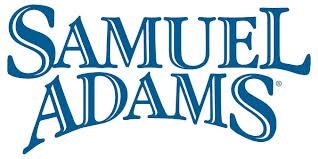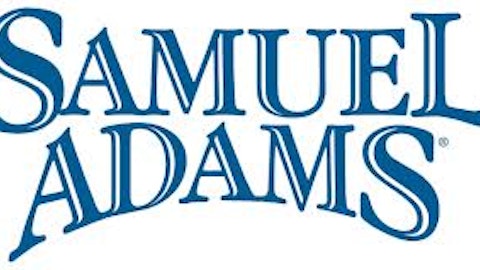
Execution
Boston Beer Co Inc (NYSE:SAM) faces some operational risks. Selling 50-plus beers per year means there are plenty of opportunities for a poor style to hurt the company’s brand. The Freshest Beer program also requires that Boston Beer is able to accurately forecast demand and plan production accordingly, leaving the company open to incurring big losses if its projections are off. Finally, Boston Beer’s 2008 recall of some Samuel Adams bottles due to small shards of glass in the beer is evidence that even strict quality controls can fail, and with big consequences.
Competition
Boston Beer Company faces strong competition from above and below. As the Better Beer category has grown at the expense of traditional adjunct lagers like Coors and Budweiser, the corporate parents of those brands have struck back by promoting their own “faux craft” beers. AB InBev has been particularly aggressive, not only releasing Shock Top and Land Shark, but also buying out Chicago-based craft brewer Goose Island. The scale of these giants allows them to price these beers for slightly less than true craft beers, while maintaining a premium to adjunct lagers.
Meanwhile, as the craft brew craze catches on, strong breweries have emerged in every region, often garnering hometown loyalty. Sierra Nevada in California, New Belgium Brewing in the Rockies, Deschutes in the Pacific Northwest, Brooklyn Brewery in the New York metro area, and Great Lakes Brewery in the Midwest are just some of the largest craft brewers to compete successfully with Boston Beer on their home turf. Even in Samuel Adams’ home turf in Boston Beer Co Inc (NYSE:SAM), Harpoon Brewery is a fierce competitor that has won over many locals. With over 2,100 breweries nationwide, even small cities are likely to have a local brewer. As the “locavore” movement takes hold among many of the same people who drink craft beer, Boston Beer may find that it’s too big to compete with the little guys on customer loyalty, even as it’s too small to compete with the giant brewers on price.
Pricing
Boston Beer is exposed to significant volatility in commodity costs for the hops and grain used in its beer, as well as packing costs. The company tries to buy in advance to hedge against spikes, and historically it has been able to increase its own prices to offset higher input costs. More recently, however, CEO Martin Roper noted the company was seeing push-back from customers on pricing increases, and he was “not optimistic” that Boston Beer Co Inc (NYSE:SAM)could continue to pass input costs on to customers.


